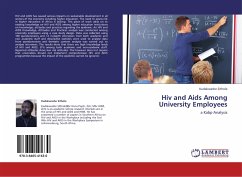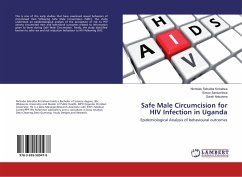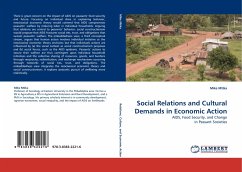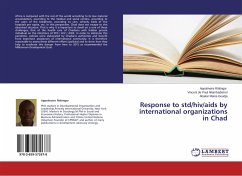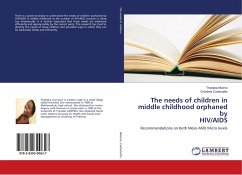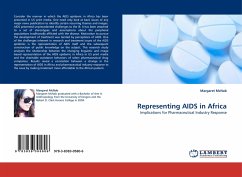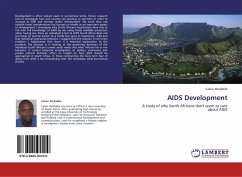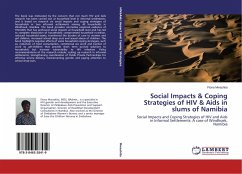
Social Impacts & Coping Strategies of HIV & Aids in slums of Namibia
Social Impacts and Coping Strategies of HIV and Aids in Informal Settlements: A case of Windhoek, Namibia
Versandkostenfrei!
Versandfertig in 6-10 Tagen
39,99 €
inkl. MwSt.

PAYBACK Punkte
20 °P sammeln!
The book was motivated by the concern that not much HIV and Aids research has been carried out at household level in informal settlements, and is based on research on social impacts and coping strategies of households in two informal settlements among 40 households in Windhoek, Namibia. The book provides normative empirical evidence of HIV/AIDS that has profound social impacts at household level and has led to complete dissolution of households; compromised household nutrition, reduced household assets; transferred the burden of care to women and girl children, increased school drop outs and s...
The book was motivated by the concern that not much HIV and Aids research has been carried out at household level in informal settlements, and is based on research on social impacts and coping strategies of households in two informal settlements among 40 households in Windhoek, Namibia. The book provides normative empirical evidence of HIV/AIDS that has profound social impacts at household level and has led to complete dissolution of households; compromised household nutrition, reduced household assets; transferred the burden of care to women and girl children, increased school drop outs and sexual abuse of children. The book highlights negative effects of some household coping strategies, such as, reduction of food consumption, commercial sex work and burden of work to girl-children that provide short term survival solutions to households but increase vulnerability to HIV infection. Policy recommendations of the research include; scaling up research in informal settlements, strengthening coordination of Public Private Partnerships for effective service delivery, mainstreaming gender and paying attention to school drop-outs.




